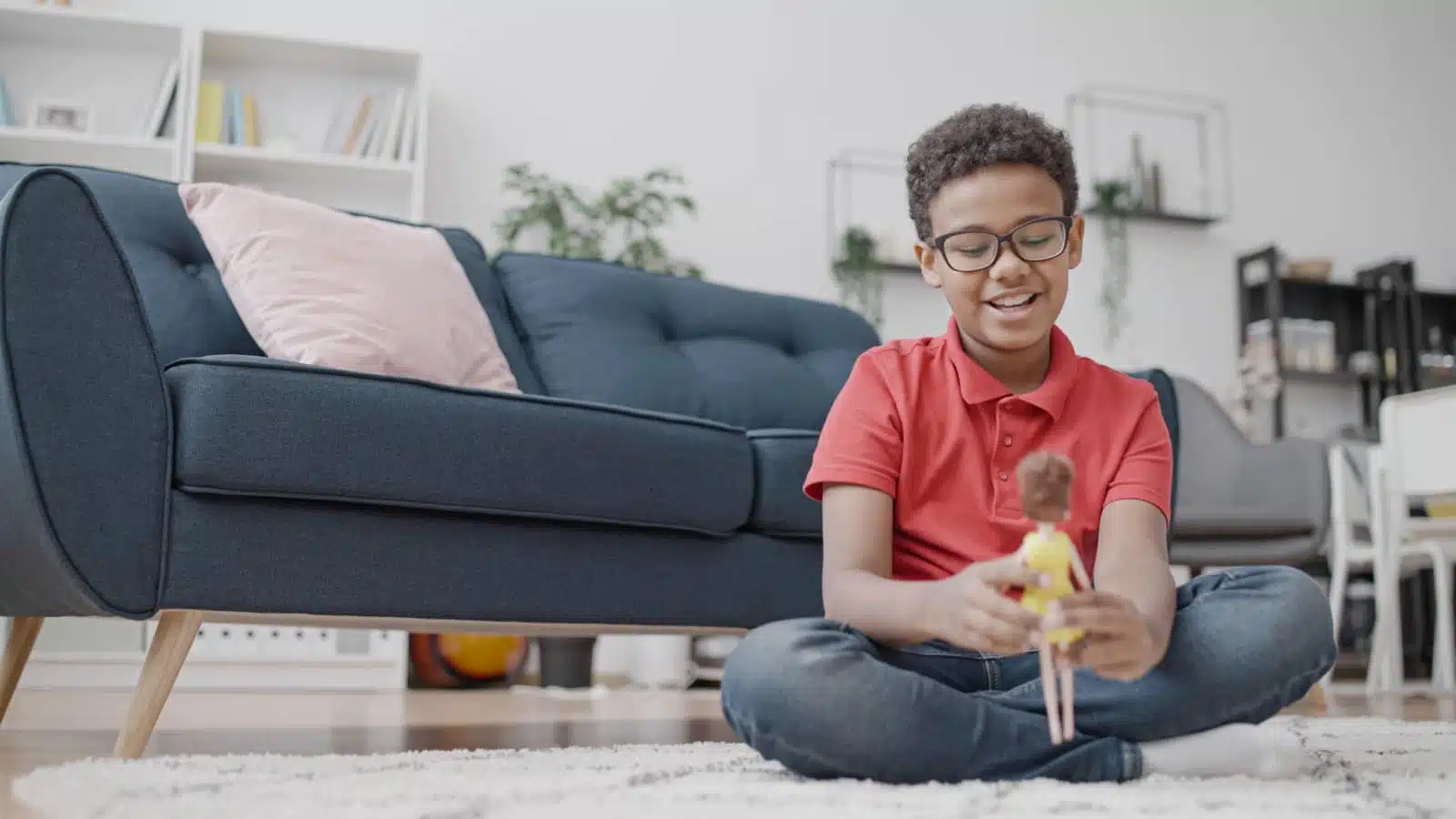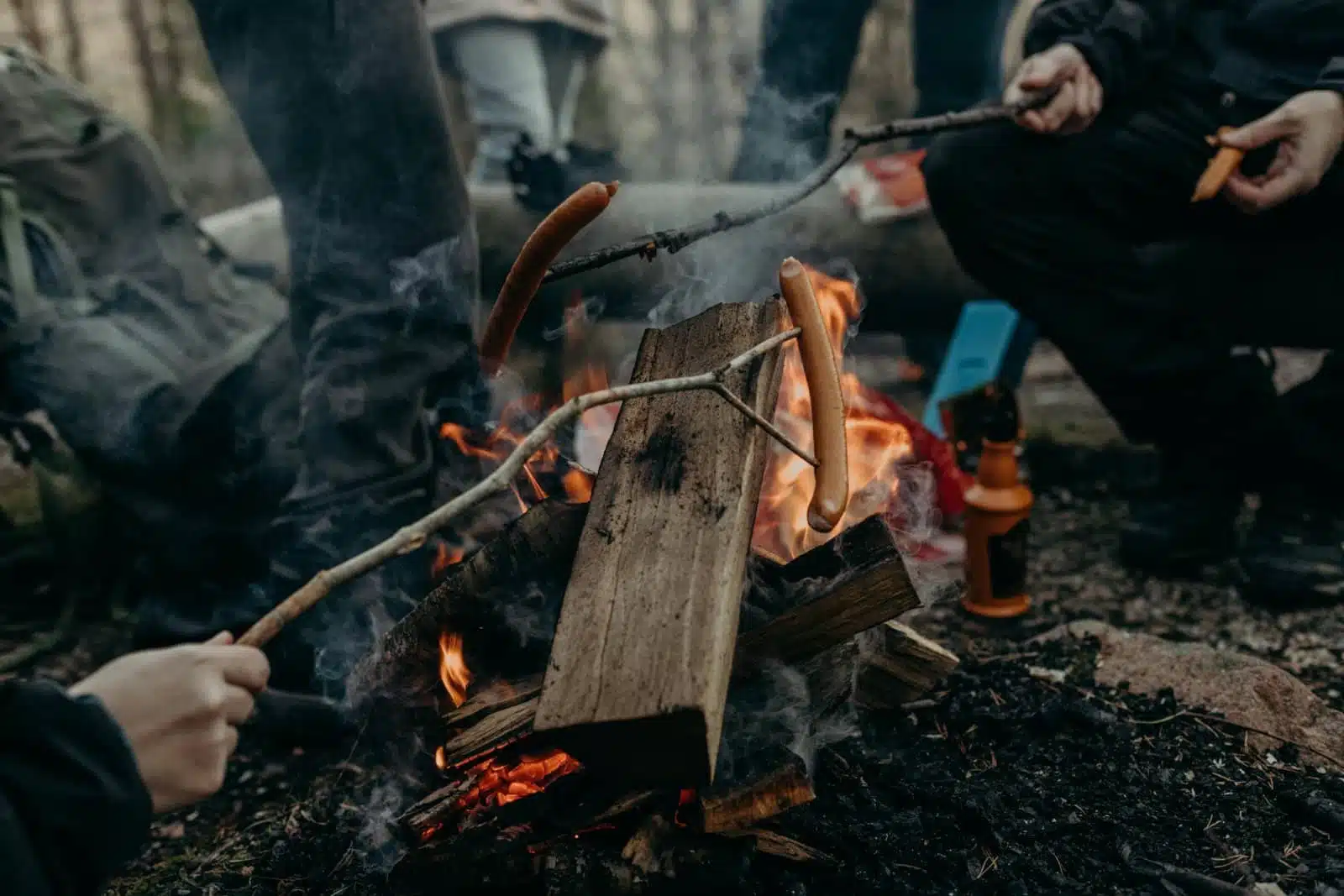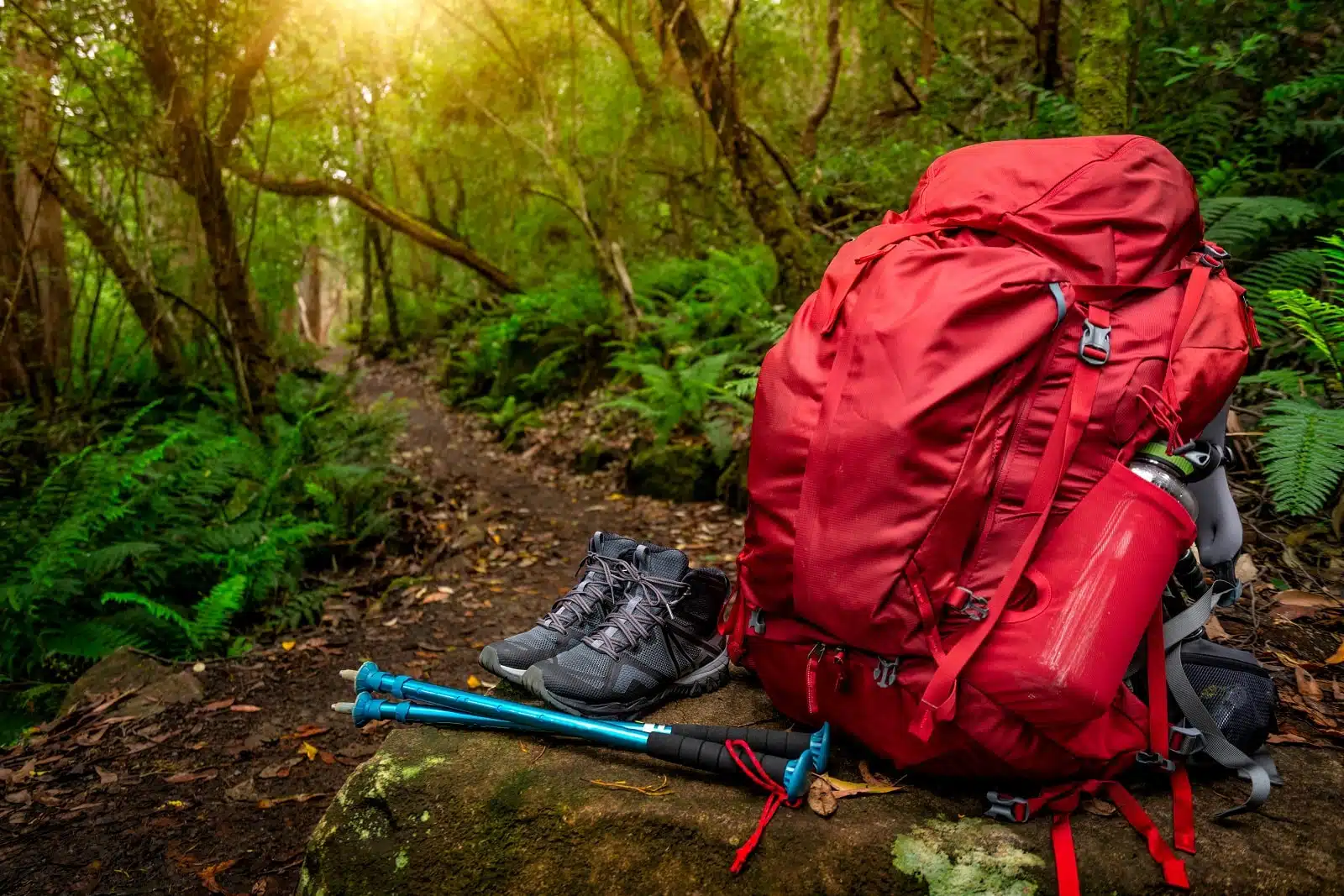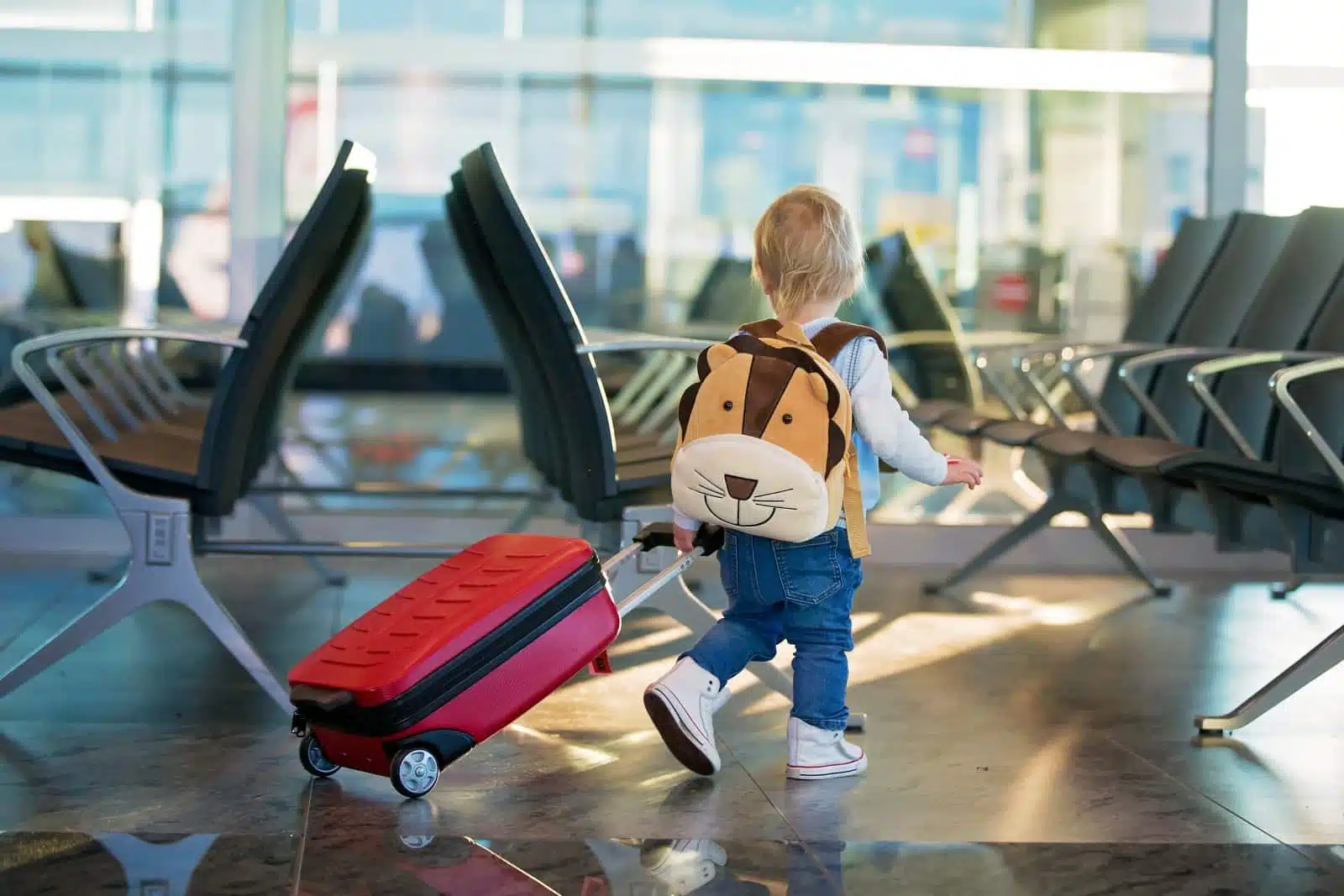Traveling, be it a rustic camping trip or an international journey, opens up a world of learning and unlearning. It’s a unique playground for challenging and leaving behind the dusty old book of gender clichés, especially when it comes to adventures with kids. Here are 18 gender clichés that need to be tossed out of your travel backpack, each one an opportunity to foster a more inclusive, understanding, and enriching experience for the young explorers in your life.
1. “Boys Don’t Cry” – Even on Tough Hikes

Image Credit: Shutterstock / Olga Danylenko
Ditch the idea that boys should mask their discomfort or fears, especially during challenging activities like hiking or exploring unfamiliar territories. Encourage open expression of feelings, teaching resilience through understanding, not suppression.
2. “Girls Need More Protection” – In Every Adventure

Image Credit: Shutterstock / Maridav
While safety is paramount for all children, overprotecting girls under the guise of their perceived fragility can limit their sense of adventure and self-reliance. Encourage independence and risk-taking in all kids, ensuring they learn to navigate risks under your guidance.
3. “Boys Shouldn’t Play with Dolls” – Even Abroad

Image Credit: Shutterstock / SynthEx
Traveling often means bringing along toys or choosing souvenirs. Encourage your children to choose what truly interests them, be it dolls, action figures, or anything in between, regardless of gender norms in different cultures.
4. “Girls Can’t Get Dirty” – Especially Camping

Image Credit: Shutterstock / Rawpixel.com
Outdoor activities and camping are bound to get messy. Encourage all kids to engage fully with the natural environment, teaching them that dirt washes off but experiences last a lifetime.
5. “Boys Don’t Help with Cooking” – Even on a Campfire

Image Credit: Pexels / Nicolette Attree
Part of the travel experience, especially camping, involves preparing meals. Involve everyone, teaching boys the joy and skill of cooking, be it over a campfire or in a foreign kitchen, fostering teamwork and independence.
6. “Girls Should Be Careful Not to Get Hurt” – Exploring New Places

Image Credit: Shutterstock / Duet PandG
While caution is necessary, overly cautioning girls can dampen their adventurous spirit. Teach all children to be aware of their surroundings and assess risks, but also to embrace the thrill of discovery.
7. “Boys Will Naturally Lead the Way” – In New Cities

Image Credit: Shutterstock / simona pilolla 2
Navigating new places offers a prime opportunity to challenge the idea that leadership is gender-specific. Encourage turn-taking among siblings or friends in leading the group, making decisions, or reading maps, fostering a sense of equality and cooperation.
8. “Girls Should Dress Modestly” – When Traveling

Image Credit: Shutterstock / AboutLife
While respecting local cultures and customs is crucial, it’s also important to challenge the notion that girls must dress a certain way to avoid unwanted attention. Educate all children on cultural sensitivity and mutual respect, focusing on personal comfort and appropriateness over outdated modesty standards.
9. “Boys Don’t Need to Check Their Appearance” – Even on the Road

Image Credit: Shutterstock / Niels Hariot
Break down the stereotype that boys shouldn’t care about their appearance by encouraging all kids to take pride in how they present themselves, teaching them that self-care and hygiene are not gender-specific.
10. “Girls Aren’t Interested in Maps or Navigation” – Exploring Together

Image Credit: Shutterstock / Bogdan Sonjachnyj
Turn every journey into a lesson in navigation for all children, showing that spatial awareness and the ability to find one’s way are essential skills for everyone, not just boys.
11. “Boys Should Carry the Heavy Stuff” – Packing for the Trip

Image Credit: Shutterstock / Summit Art Creations
Teach responsibility and strength to all kids by encouraging them to carry their own gear, adjusting for age and capability rather than gender, fostering a sense of personal responsibility.
12. “Girls Need More Toiletries” – Packing Essentials

Image Credit: Shutterstock / Meister Photos
Challenge the idea that girls inherently need more personal care items by teaching minimalism and practicality in packing, emphasizing that travel essentials don’t have to be gendered.
13. “Boys Will Be More Interested in Science and History Museums” – Choosing Activities

Image Credit: Pexels / Gianna P1
Select travel activities based on interests rather than gender stereotypes, ensuring a diverse experience that includes science, art, history, and more, encouraging a broad spectrum of learning for all kids.
14. “Girls Are Naturally More Cautious” – Trying New Foods

Image Credit: Shutterstock / Drazen Zigic
Encourage all children to be adventurous with food, challenging the cliché that girls are pickier or more cautious eaters, and celebrating new flavors and cuisines as a family.
15. “Boys Don’t Do Crafts” – Cultural Workshops

Image Credit: Shutterstock / Viktor Gladkov
Engage in local crafts and workshops as a family activity, breaking down the barriers that often steer boys away from creative expression, and highlighting the universal joy of making and creating.
16. “Girls Are Better at Languages” – Learning While Traveling

Image Credit: Shutterstock / Pressmaster
While it’s often said that girls excel in language learning, encourage all children equally to pick up new words and phrases, making language acquisition a fun and inclusive part of your travels.
17. “Boys Are More Tech-Savvy” – Documenting the Trip

Image Credit: Shutterstock / Sergey Maksienko
Share the responsibility and fun of documenting the trip, teaching all children how to use cameras, write journals, or navigate apps, debunking the myth that tech savviness is gendered.
18. “Girls Should Stick Together” – During Group Activities

Image Credit: Shutterstock / Rawpixel.com
Foster a sense of team spirit among all children during group activities, challenging the notion that girls need to stick with girls and boys with boys, and encouraging friendships based on interests rather than gender.
Learning Lessons

Image Credit: Shutterstock / Tomsickova Tatyana
Travel is the ultimate teacher, and by challenging these gender clichés, we open our children to a world of possibilities, teaching them to embrace diversity, equality, and the joy of discovery on their own terms.
More From The Green Voyage
Top 10 Trending Travel Destinations 2024
6 Essential Banking Apps for International Travel – Managing Your Finances on the Go
Traveling With Kids – 10 Tips to Create Memorable Family Holidays
The post Ditching Gender Clichés on the Global Trail: 18 Must-Dos for Family Travel first appeared on The Green Voyage.
Featured Image Credit: Shutterstock / Prostock-studio.
For transparency, this content was partly developed with AI assistance and carefully curated by an experienced editor to be informative and ensure accuracy.
Tips for Trip Success
Book Your Flight
Find an inexpensive flight by using Kayak, a favorite of ours because it regularly returns less expensive flight options from a variety of airlines.
Book Your Hotel or Special Accommodation
We are big fans of Booking.com. We like their review system and photos. If we want to see more reviews and additional booking options, we go to Expedia.
You Need Travel Insurance!
Good travel insurance means having total peace of mind. Travel insurance protects you when your medical insurance often will not and better than what you get from your credit card. It will provide comprehensive coverage should you need medical treatment or return to the United States, compensation for trip interruption, baggage loss, and other situations.Find the Perfect Insurance Plan for Your Trip
